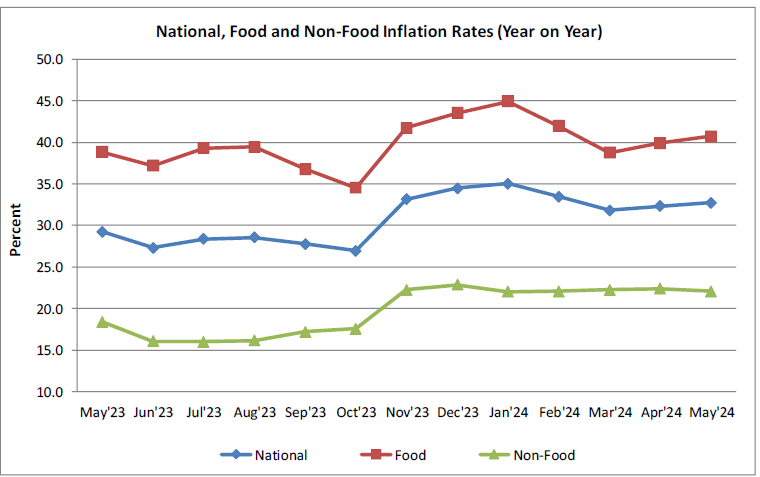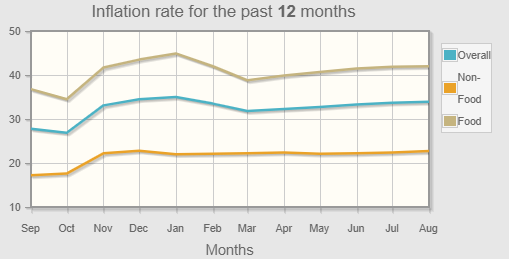Malawi’s year-on-year inflation rate for May 2024 increased by 0.4 percentage points to 32.7 percent, published National Statistical Office (NSO) figures show.
NSO data shows that the rise in inflation, a general increase in prices and fall in the purchasing value of money, was mainly due to rising food prices.

In its statement, the NSO said food and non-food inflation rates were recorded at 40.7 percent and 22.1 percent, respectively in the month under review.
“The national month to month inflation rate for May 2024 stands at 1.8 percent. Food inflation rate is at 2.5 percent while non-food inflation rate is at 0.6 percent,” reads the statement.
According to the statement, the urban month-to- month inflation rate was seen at two percent with urban food and non-food inflation rates at 3.4 percent and 0.2 percent, respectively.
On the other hand, the rural month to month inflation rate stood at 1.7 percent with rural food and non-food inflation rates at 2.1 percent and 0.9 percent, respectively.
Meanwhile Reserve Bank of Malawi (RBM) has indicated it cannot single-handily control the rise in inflation, saying there is need for collaborative efforts of stakeholders as the rate jumps 0.4percentage points to 32.7 percent in May.
RBM spokesperson Mark Lungu is on record as having said monetary policy alone cannot solve the current inflation challenges, adding that they are a combination of many factors.
“The environment in which we operate has significantly changed. Of late, economies, including Malawi experience a number of exogenous economic shocks from rising commodity prices to weather induced shocks. As such, inflation sources have also multiplied.
“This is the reason there is need for collaborative efforts from all key players to ensure we insulate the economy from these shocks,” said Lungu.
He said the central bank has at its disposal monetary instruments which are effective in managing demand side of the equation.
“The imported inflation is a result of our supply gap and we need to close that by boosting domestic production which will bring about import substitution,” said Lungu.
Meanwhile, RBM has forecast 2024 annual inflation at 30 percent and upside risks to the inflation outlook.





